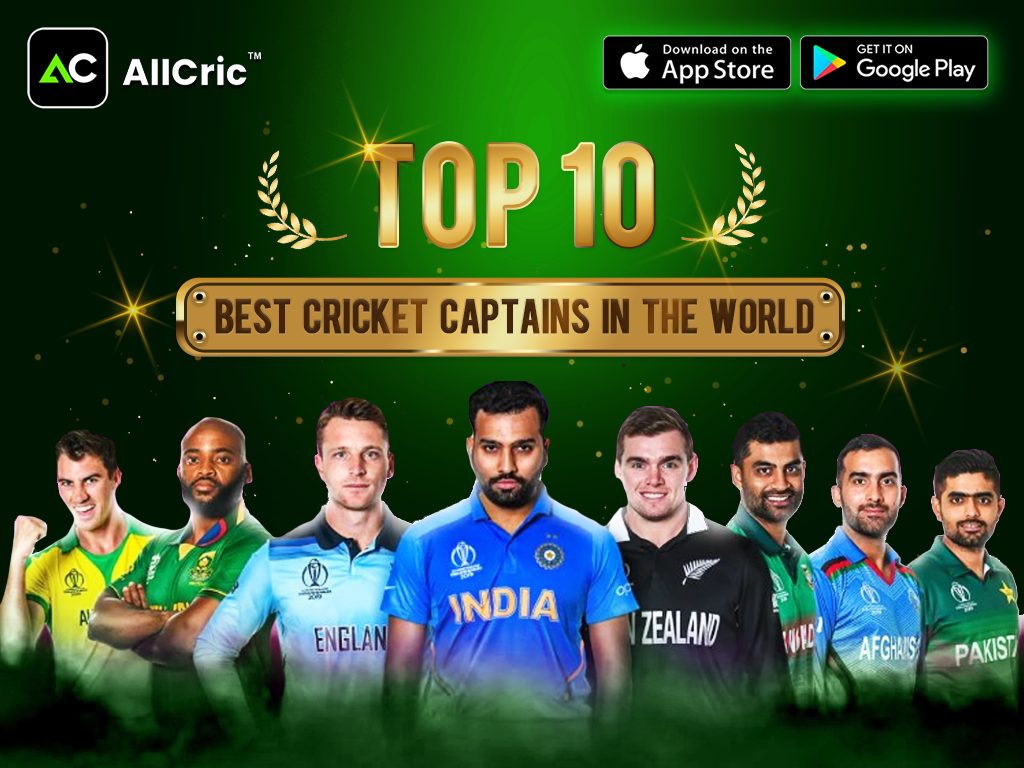Top 10 Best Cricket Captains in the World
Cricket has seen countless iconic captains throughout history, each leaving a mark with their leadership, strategy, and passion. From dominating the world stage to inspiring their teams to victory, these captains have led their nations to glory and shaped how cricket is played and perceived globally.
This blog looks into the world’s top 10 captains in cricket history, exploring their exceptional leadership qualities, the best achievements, and the lasting legacies they’ve created within the sport.
Mahendra Singh Dhoni is known as one of the finest captains in cricket history, mainly due to his calm under pressure and tactical brilliance. MS Dhoni, who is widely known as the number 1 captain in the world, led India to some of its most significant cricketing achievements.
Under his captaincy, India clinched the 2007 ICC T20 World Cup, followed by the 2011 ICC Cricket World Cup and the 2013 ICC Champions Trophy. His ability to thrive in high-pressure situations and make decisive, match-winning moves has cemented his legacy as one of the most successful captains in cricket.
2. Ricky Ponting (Australia)
Ricky Ponting’s captaincy during its golden era in the 2000s speaks about his aggressive style and tactical prowess. Under his captaincy, Australia became an unstoppable force in world cricket, with Ponting leading his team to back-to-back ICC Cricket World Cup victories in 2003 and 2007.
Known for his bold and assertive approach, Ponting helped maintain Australia’s dominance across both Test and ODI formats. His ability to inspire his team and sharp, cricketing mind ensured Australia remained at the top of world cricket throughout the decade, cementing his legacy as one of the sport’s best captains.
3. Stephen Fleming (New Zealand)
Stephen Fleming was known for his calm, thoughtful approach and strategic abilities, which set him apart as one of New Zealand’s most successful captains. Under his guidance, New Zealand became a competitive force in international cricket. One of his standout achievements was leading the team to the 2007 ICC Cricket World Cup final.
Fleming’s ability to make strategic decisions and maintain composure under pressure helped elevate New Zealand’s performance. His leadership style earned him the respect of his team and opponents.
4. Graeme Smith (South Africa)
Graeme Smith’s captaincy is defined by his resilience, tactical mindset, and ability to lead South Africa through challenging periods. He guided them to the top of the ICC Test Cricket rankings. His leadership was crucial when the team was rebuilding, and his unwavering determination played a key role in transforming South Africa into a strong team in world cricket.
His strategic mindset and never-give-up attitude helped South Africa consistently perform at the highest level, making Smith one of the best captains in test cricket history. His legacy continues to influence South African cricket today.
5. Allan Border (Australia)
Allan Border’s captaincy played a significant role in rebuilding Australian cricket during the 1980s, a time when the team was undergoing a significant transition. Known for his gritty determination and unwavering commitment, Border laid the foundation for Australia’s dominance in the 1990s.
His leadership through difficult times helped restore the team’s competitive spirit, and his analytical skills earned him respect not only in Australia but throughout the world. Border’s ability to inspire his players and encourage a resilient, fighting mentality made him one of the most successful captains of his era, setting the stage for the future success of Australian cricket.
6. Arjuna Ranatunga (Sri Lanka)
Arjuna Ranatunga played a major role in making Sri Lanka one of the best global cricket contenders, leading to its historic 1996 Cricket World Cup victory. Known for his aggressive leadership style and clear vision for the future of Sri Lankan cricket, Ranatunga, as the team’s captain, developed a sense of belief and unity within the players.
His bold decisions, such as promoting Sanath Jayasuriya to open the batting, were key to Sri Lanka’s success during the World Cup and beyond. Ranatunga’s leadership not only secured Sri Lanka’s place in cricket’s top league but also led the way for the country’s rise as a competitive team on the world stage.
7. Mohammad Azharuddin (India)
Mohammad Azharuddin’s captaincy in the 1990s marked a golden era for Indian cricket, where his batting skills and expert leadership brought significant success in the Test and ODI formats. Known for his calm demeanor and strategic approach, Azhar led India to numerous memorable victories, including series wins overseas and key tournaments.
His style was defined by his ability to handle pressure and his focus on building a strong, cohesive team. Azhar’s influence as a captain extended beyond the field, as he became one of India’s best influential figures in cricket during his tenure, leaving a lasting impact on the sport.
8. Virat Kohli (India)
Virat Kohli’s aggressive and passionate approach to the game has made him one of the best captains in modern cricket. Under his guidance, India achieved remarkable success across all formats, with Kohli leading the team to the top of the ICC Test rankings and maintaining a strong presence in ODIs and T20s.
Known for his relentless drive and competitive spirit, Virat Kohli has built India into a strong team, particularly in Test cricket, where his leadership has been key to India’s successes. His ability to inspire his players, coupled with his fierce determination, has made him one of the most successful captains in the world.
9. Kane Williamson (New Zealand)
Kane Williamson is defined by his calm and composed nature, particularly in high-pressure situations, which has earned him respect in the cricketing world. Under his captaincy, New Zealand reached the 2019 ICC Cricket World Cup final, an achievement that highlighted his ability to guide his team through crucial moments.
Williamson’s leadership extends across all formats, where his consistency and tact have helped New Zealand remain competitive on the global stage. His thoughtful approach and ability to inspire confidence in his players have firmly established him as one of the most respected and best captains in modern cricket.
10. Eoin Morgan (England)
Eoin Morgan’s captaincy redefined England’s white-ball cricket, resulting in their historic 2019 ICC Cricket World Cup victory. His innovative and aggressive approach to the game reshaped England’s strategy in limited-overs formats, focusing on attacking play and fearless batting.
Morgan’s as a captain was known for his ability to inspire and bring out the best in his players. Under his guidance, England became one of the most talented teams to compete with in ODIs and T20s, and their 2019 World Cup victory remains a reminder of his forward-thinking managerial style and the successful transformation of England’s cricket philosophy.
Stay Ahead in Cricket with AllCric: Your Guide to Cricket Insights

Each of these captains has left a significant mark on the history of cricket. Their unique leadership styles, strategic minds, and passion for the game have shaped their teams. Whether through aggressive tactics, calm decision-making, or transformational changes, these leaders have set standards for future generations.
As the cricket world continues to evolve, staying updated with the latest performances, match insights, and expert analysis is important. That’s where the AllCric app comes in, offering features like world cricket predictions, player performance analysis, and daily fantasy cricket tips. By engaging with our platform, you can deepen your understanding of the sport and stay ahead in the cricket world.
Download the AllCric app now and elevate your cricket experience!

